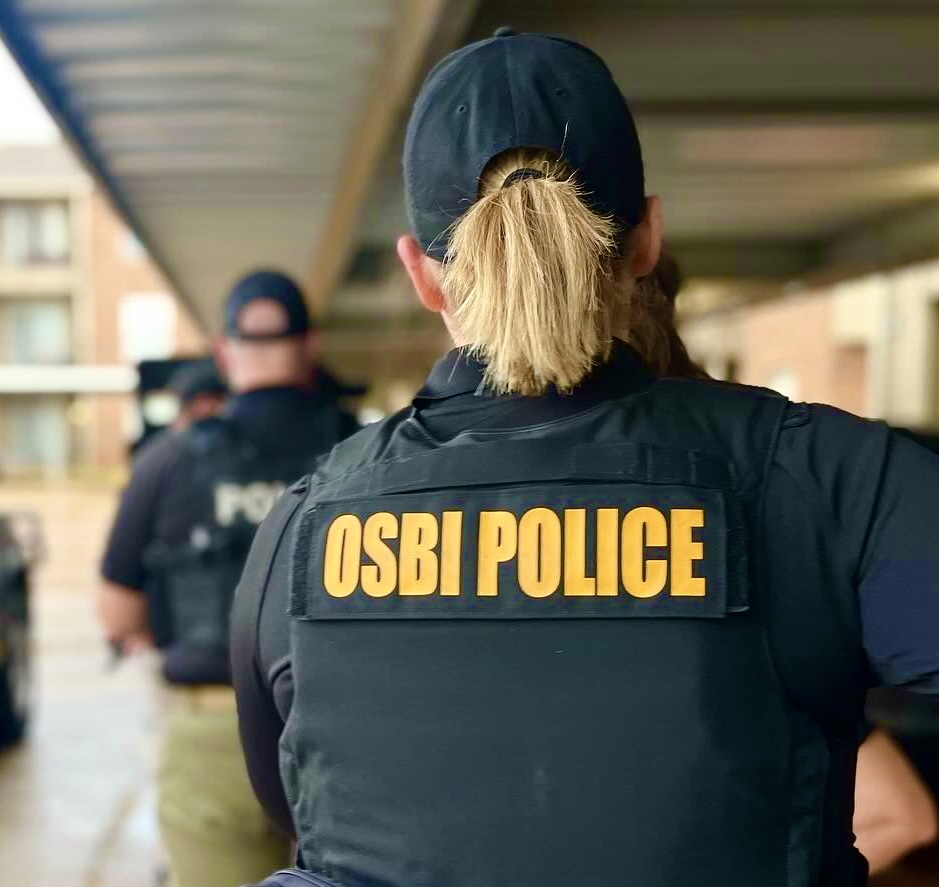Protecting Oklahoma one partnership at a time, the Oklahoma State Bureau of Investigation (OSBI) is the state’s premier law enforcement agency. The agency strives to set a new standard of excellence by providing unmatched investigative, intelligence, information and forensic services through core values of trust, integrity and respect.
Although the public often equates the OSBI only with special agents who investigate major crimes, the agency’s employees hold a wide variety of skill sets, with criminalists, information technology specialists and information services personnel on the payroll. The OSBI offers internships, practicums and temporary and student positions, as well.

The OSBI utilizes the State Incident-Based Reporting System (SIBRS), which is part of a nationwide, cooperative statistical effort administered by the Federal Bureau of Investigation. Created to serve law enforcement for operational and administrative purposes, SIBRS data collects detailed information such as victim/offender demographics, victim-to-offender relationships, drug types, premise types, and property stolen and/or damaged.
The OSBI’s Criminal History Information Request Portal (CHIRP) is an online system allowing the public to request an electronic, name-based criminal history record check from anywhere in the world. CHIRP allows the public to access information about family, friends and employees, and is helpful to verify safety by accessing information about people like babysitters, eldercare workers, potential roommates, pet or house sitters. Anyone may request a criminal history background check for a small fee by visiting osbi.ok.gov/pages/chirp.
Assisting victims and survivors of violent crimes, the OSBI Victims Support Program helps to restore a sense of safety and security by connecting victims and their families with available Oklahoma resources. The service, which is connected to OSBI-handled crimes, engages with those impacted by the crimes, and also assists agents in communicating with victims. The program’s responsibilities include educating victims about the investigative and criminal justice processes, their rights, and the Crime Victim Compensation Program. The service also allows victims and/or family members to be accompanied to various court hearings.
The Oklahoma Missing Person Clearinghouse assists law enforcement agencies, and families of missing persons, with available resources to help locate those missing. The Clearinghouse is a state liaison with the National Center for Missing and Exploited Children, and also partners with other agencies. The public may report a missing person by contacting local law enforcement agencies and having a missing person entry made into the National Crimes Information Center database. The public may also contact the Oklahoma Missing Persons Coordinator through the OSBI.
In 2019, Francine’s Law redefined the definition of a missing person in Oklahoma, requiring entry of that missing person into the National Missing and Unidentified Persons System within 30 days.

Becoming an Agent
“To become an OSBI special agent, you must have at least two years of law enforcement experience and a bachelor’s degree,” says Hunter McKee, OSBI’s public information manager. “We look for hardworking and dedicated individuals. We have several requesters throughout the state. This includes law enforcement agencies, district attorneys and the governor. When requested, our agents can assist in a variety of cases, and we use our resources to investigate allegations of wrongdoing or crime.”






















